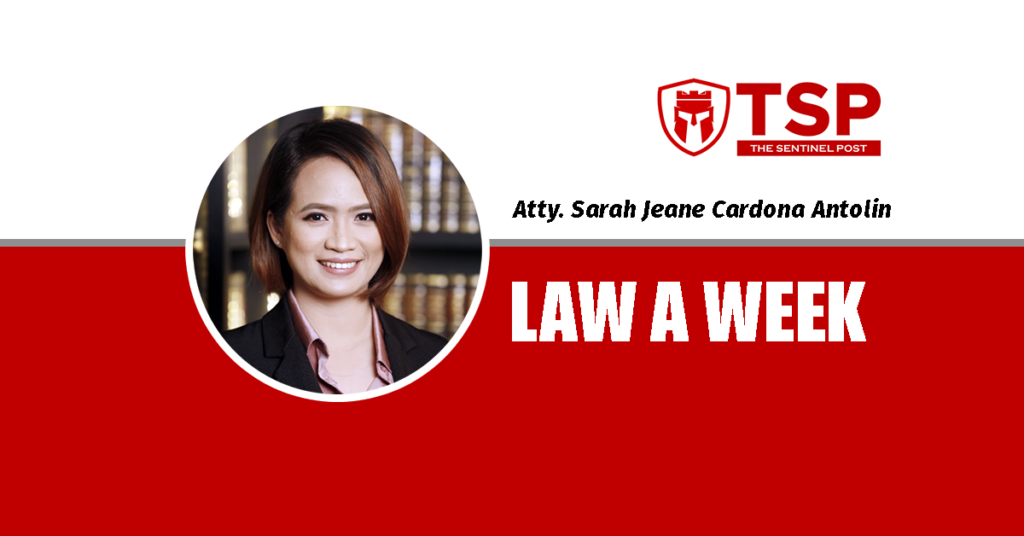Can a foreigner be appointed as an officer of a land-owning entity?
Section 7, Article XII of the 1987 Constitution restricts land ownership as follows:
“Sec. 7. Save in cases of hereditary succession, no private lands shall be transferred or conveyed except to individuals, corporations or associations qualified to acquire or hold lands of public domain.” (Emphasis supplied)
In line with this, Section 23 of Commonwealth Act No. 141 provides that “any corporation or association of which at least sixty per centum of the capital stock or of any interest in said capital stock belongs wholly to citizens of the Philippines, and which is organized and constituted under the laws of Philippines” may own private land. This is likewise provided in Executive Order No. 175 dated 27 June 2022 or the Twelfth Regular Foreign Investment Negative List, which allows up to forty percent foreign equity in corporations engaged in “[o]wnership of private lands.”
In relation to this, Section 2-A of the Anti-Dummy Law applies to corporations that own private land in the Philippines, as the said section applies to a corporation “which, having in its name or under its control, a right, franchise, privilege, property or business, the exercise or enjoyment of which isexpressly reserved by the Constitution or the laws to citizens of the Philippinesor of any other specific country, or to corporations or associations at least sixty per centum of the capital of which is owned by such citizens x x x.”
In DOJ Opinion No. 037, s. 1976, the DOJ upheld the application of the Anti-Dummy Law on a realty company with foreign directors and corporate officers:
“A reading of Section 2-A readily reveals the legislative intent to complement our nationalization laws by closing any avenue whereby aliens may defeat their purpose [King vs. Hernaez, 4 SCRA 792, (1962)]. It penalizes the employment of aliens in any position pertaining to management, operation, administration and control, “whether as an officer, employee, or laborer therein”, which means that the employment of a person who is not a Filipino citizen even in a minor or clerical or non-control position is prohibited.
The enactment of P.D. No. 715 merely introduced an exception to this prohibition, by allowing the election of aliens as directors of entities engaged in partially nationalized activities, to represent the limited alien participation in the equity of such firms. As such an exception, the proviso added by P.D. No. 715, must, by settled rules of statutory construction, be strictly construed. [Salaysay vs. Castro, 96 Phil. 364 (1956).]”
Further, in SEC-OGC Opinion No. 15-17, (Re: Compensation of Trustees; Acquisition of Land by a Non-Stock, Non-Profit Religious Corporation, 22 November 2017),ownership of land was described as a partly nationalized activity undertaking and thus governed by the provisions of the Anti-Dummy Law, to wit:
“Corollarily, since ownership of land is a partly nationalized activity/undertaking, the number of foreigners in the Board of Trustees must be in proportion to their allowable participation in the corporation pursuant to Section 2-A 11 of the Anti-Dummy Law. This provision prohibits the employment by any person, corporation, or association of an alien, who shall intervene in the management, operation, administration or control thereof, whether as officer, employee, laborer, when the exercise or enjoyment of the property or of the franchise, privilege, or business engaged in by such person, corporation or association “is expressly reserved by the Constitution or the law to the citizen of the Philippines” or “corporations or associations at least 60% of the capital of which is owned by such citizens,” however, it allows such alien to be elected as director in proportion to his allowable participation or share in the corporation’s capital. Thus, foreigners should not constitute more than 40% of the members of Sokka Gakkai’s Board.” (Emphasis supplied)
Moreover, in SEC in SEC-OGC Opinion No. 13-16, (Re: Partially-Nationalized Industries and the Anti-Dummy Law, 30 May 2016), it was likewise held:
“To reiterate, LQSC has the primary purpose “to develop real estate projects in conjunction with modern construction methods and systems” and the secondary purpose “to acquire, lease, purchase and go into joint venture, borrow, lend and develop subdivision and condominium properties . . . in relation to its businesses”. Such purposes include or allow ownership of land. In short, we are of the opinion that one of the activities to be undertaken by LQSC is ownership of land, which is a partly nationalized undertaking, considering that 60% of the capital of a corporation engaged in this activity is required by Art. XII, Section 7, of the Constitution and List A, No. 18 of the 10th Foreign Investment Negative List (FINL-10) to be owned by Philippine citizens.
Consequently, the Anti-Dummy Law applies to LQSC. Therefore, Mr. Wright cannot act as a president/chairman of the board, nor can he increase his shareholdings to 40% if there are other foreign stockholders in the corporation. On the other hand, if there is no other foreign stockholders in the corporation, Mr. Wright can increase his shareholdings from 25% to 40%, but cannot act as president/chairman of the board.”
Additionally, in SEC-OGC Opinion No. 14-15, the SEC opined that “[o]nthe citizenship requirement of corporate officers. Sec. 2-A of Commonwealth Act No. 108, as amended, bans foreigners from being elected or appointed to management positions as president, vice-president, treasurer, secretary, etc.in business activities where there is a constitutional or statutory provision imposing a specific nationality requirement as a requisite for the exercise or enjoyment of a right, franchise or privilege.”
Given the foregoing, a foreign national cannot be appointed as an officer of a land-owning entity.




